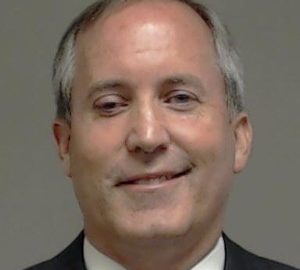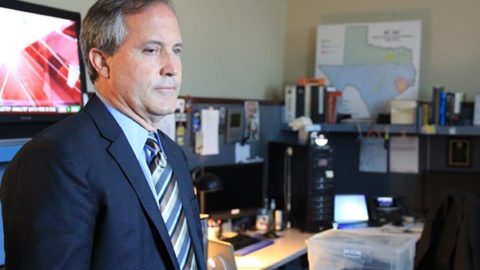Texas Democrats are campaigning on the issue of how lawmakers draw political maps ahead of the 2018 elections. They say partisan gerrymandering is solely a state issue right now, because the U.S. Supreme Court didn’t rule this term on whether the practice is legal.
Partisan gerrymandering is when lawmakers draw up political districts to favor one party over the other. In Texas, Democrats have spent the last several years in court fighting maps they say overtly hurt Democratic voters. The Supreme Court, however, decided not to hear the state’s gerrymandering case.
Justin Nelson, the Democratic candidate for Texas attorney general, is making it a big part of his campaign. He highlighted gerrymandered districts in Austin during a bar crawl last week.
The event started at Shangri-La on East Sixth and covered two other bars on Sixth Street – all within a couple blocks of each other. Each of the bars was in a different congressional district.
“It’s crazy – no sane person would ever intentionally draw districts like this unless it was designed for a purpose,” Nelson said. “And the purpose of these districts is to discriminate.”
Nelson said Sixth Street is a good illustration of how bizarre the state’s congressional districts are. For example, the second stop in the bar crawl – Ah Sing Den – is on the other side of Medina Street, which acts as the divide between CD 25 and CD 35. One seat is held by Republican Roger Williams. The other seat belongs to Democrat Lloyd Doggett.
Just one more block down, however, the congressional district switches back.
“It’s just a little bit almost like a shark’s tooth that comes out right here to do it,” Nelson said.
The last stop on his bar crawl was a six-minute walk west to Easy Tiger. The restaurant is in CD 21, which is represented by Republican Lamar Smith.
Nelson said gerrymandering is one of the most common concerns he hears from voters around Texas.
“It’s not fair,” said Mila Miccutchen, who attended the bar crawl Thursday. “It doesn’t allow for even voting. You are picking your voters; you are not allowing the voters to pick you. That’s the problem with it.”
Miccutchen lives on the west side of Austin near Zilker Park – an area that’s also cut up into different districts.
Austin’s mostly liberal voters are divided into six congressional districts; five of those seats are held by Republicans. Austin is also the largest U.S. city that doesn’t have a congressional district squarely anchored in it. If you live in Austin and pay attention, Miccutchen said, it’s easy to see evidence of this.
“I am next door to people that are in a totally different district,” she said.
Partisan gerrymandering is something both political parties do. Texas Democrats were hoping the Supreme Court would rule no lawmakers could draw districts that favor their party. But that ruling never came.
There will be a new census in 2020, which means new maps will have to be drawn. Democrats say it’s up to them to make sure the maps are more fair this time.
“It means that we need to fight like hell for the voting rights of Texans,” said Manny Garcia, the deputy executive director for the Texas Democratic Party.
Garcia said Democrats are campaigning on this issue because electing them to run the state government is the only way to ensure political lines are more fair to Democrats. He said the party would be pushing for reforms, which could include an independent redistricting commission.
“Now more than ever we need to go out there, and we need to overwhelm these systems and we need to vote at incredible levels,” Garcia said. “We can do this at the Texas level. If Washington isn’t gonna get the job done, we can do this at the state Capitol.”
Nelson said if he becomes the new Texas attorney general he’ll have a direct say in whether political lines are fair. The Texas attorney general – along with the lieutenant governor, speaker of the House, comptroller and commissioner of the general land office – sits on the Legislative Redistricting Board.
“It also issues opinions and can say that what’s going on is constitutional or not,” Nelson said. “So, I will be a strong voice against gerrymandering.”
The current Texas attorney general, Republican Ken Paxton, has a different view on partisan gerrymandering. Paxton joined a multistate brief that was sent to the U.S. Supreme Court in a case from Wisconsin.
In it, Paxton said there is nothing “invidious or irrational” about favoring one party over another when divvying up voting districts.
Nelson actually weighed in on the same case as a law professor at UT Austin. In his brief, he said partisan gerrymandering undermines democracy.
Article by Ashley Lopez • View on KUT 90.5



